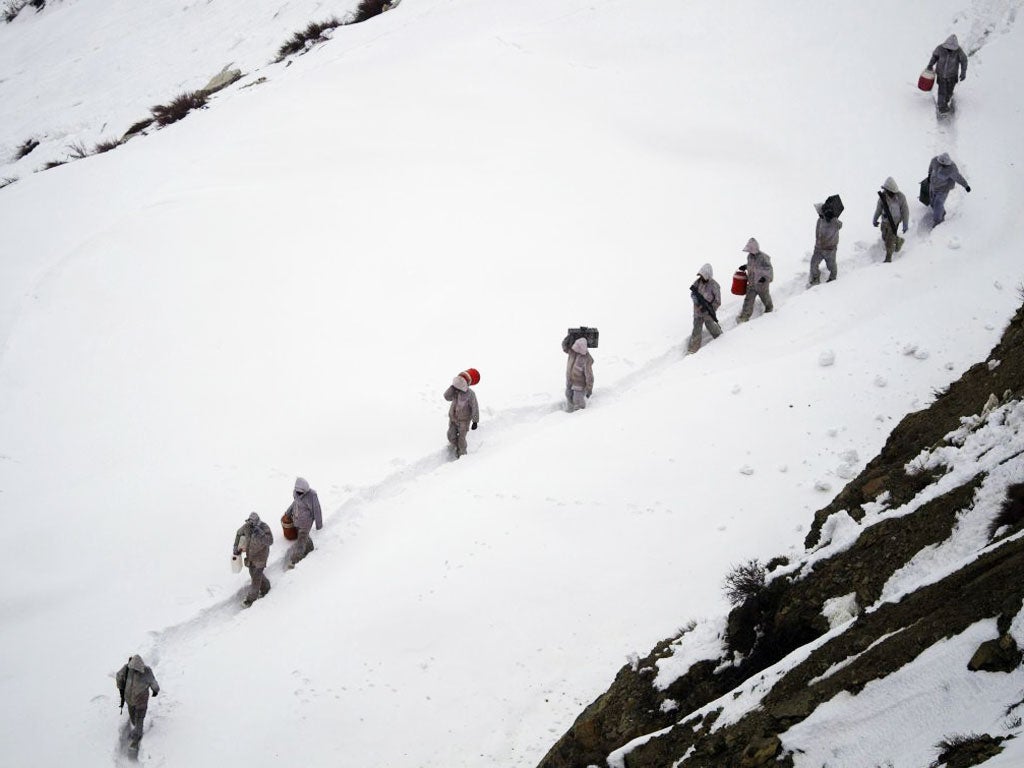
Your support helps us to tell the story
From reproductive rights to climate change to Big Tech, The Independent is on the ground when the story is developing. Whether it's investigating the financials of Elon Musk's pro-Trump PAC or producing our latest documentary, 'The A Word', which shines a light on the American women fighting for reproductive rights, we know how important it is to parse out the facts from the messaging.
At such a critical moment in US history, we need reporters on the ground. Your donation allows us to keep sending journalists to speak to both sides of the story.
The Independent is trusted by Americans across the entire political spectrum. And unlike many other quality news outlets, we choose not to lock Americans out of our reporting and analysis with paywalls. We believe quality journalism should be available to everyone, paid for by those who can afford it.
Your support makes all the difference.An avalanche has smashed into a Pakistani army base on a Himalayan glacier along the Indian border, burying around 100 soldiers, the military said.
Helicopters, sniffer dogs and troops were deployed to the remote Siachen Glacier to rescue those trapped, according to a military statement.
The avalanche hit a battalion headquarters in the glacier's Gayari sector at 5.45am local time, according to a security official.
Siachen is on the northern tip of the divided Kashmir region claimed by both India and Pakistan.
Both countries station hundreds of troops there, who brave viciously cold temperatures, altitude sickness and high winds for months at a time.
Troops have been deployed at elevations of up to 6,700 metres and have skirmished intermittently since 1984. The glacier is known as the world's highest battlefield.
More soldiers have died from the harsh weather there than combat.
The headquarters in Gayari is the main gateway through which troops and supplies pass on their way to other more remote outposts in the sector.
It is situated in a valley between two high mountains, close to a military hospital, according to an officer who was stationed there in 2003.
"I can't comprehend how an avalanche can reach that place," said the officer, who did not give his name. "It was supposed to be safe."
Conflict began in 1984 when India occupied the heights of the 49-mile glacier, fearing Pakistan wanted to claim the territory. Pakistan also deployed its troops. Both armies remain entrenched despite the ceasefire, costing the poverty-stricken countries many millions of dollars each year.
Pakistan and India have fought three wars since the partition of the subcontinent following independence from Britain in 1947. Two of the wars have been over Kashmir, which both claim in its entirety.
AP
Join our commenting forum
Join thought-provoking conversations, follow other Independent readers and see their replies
Comments